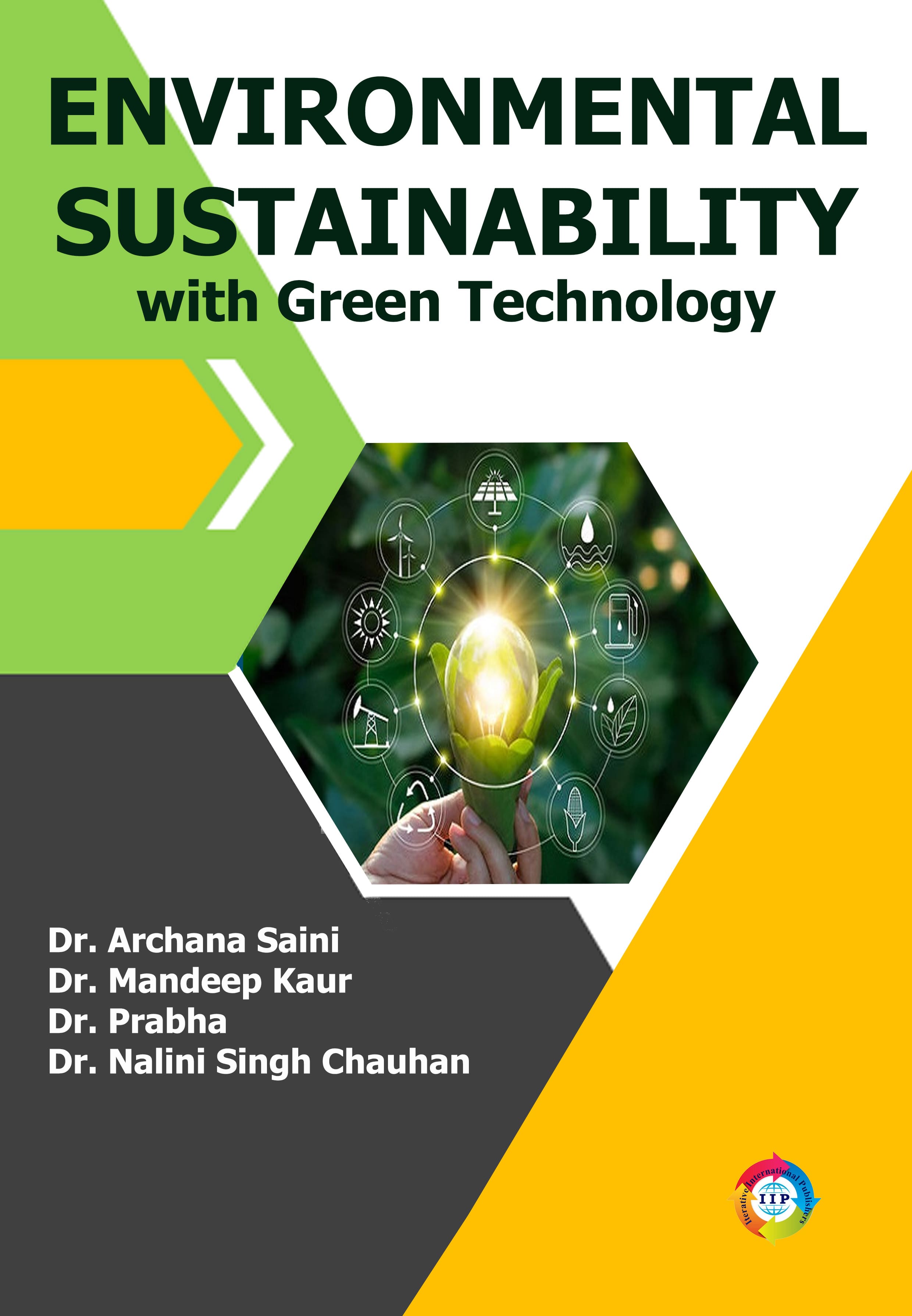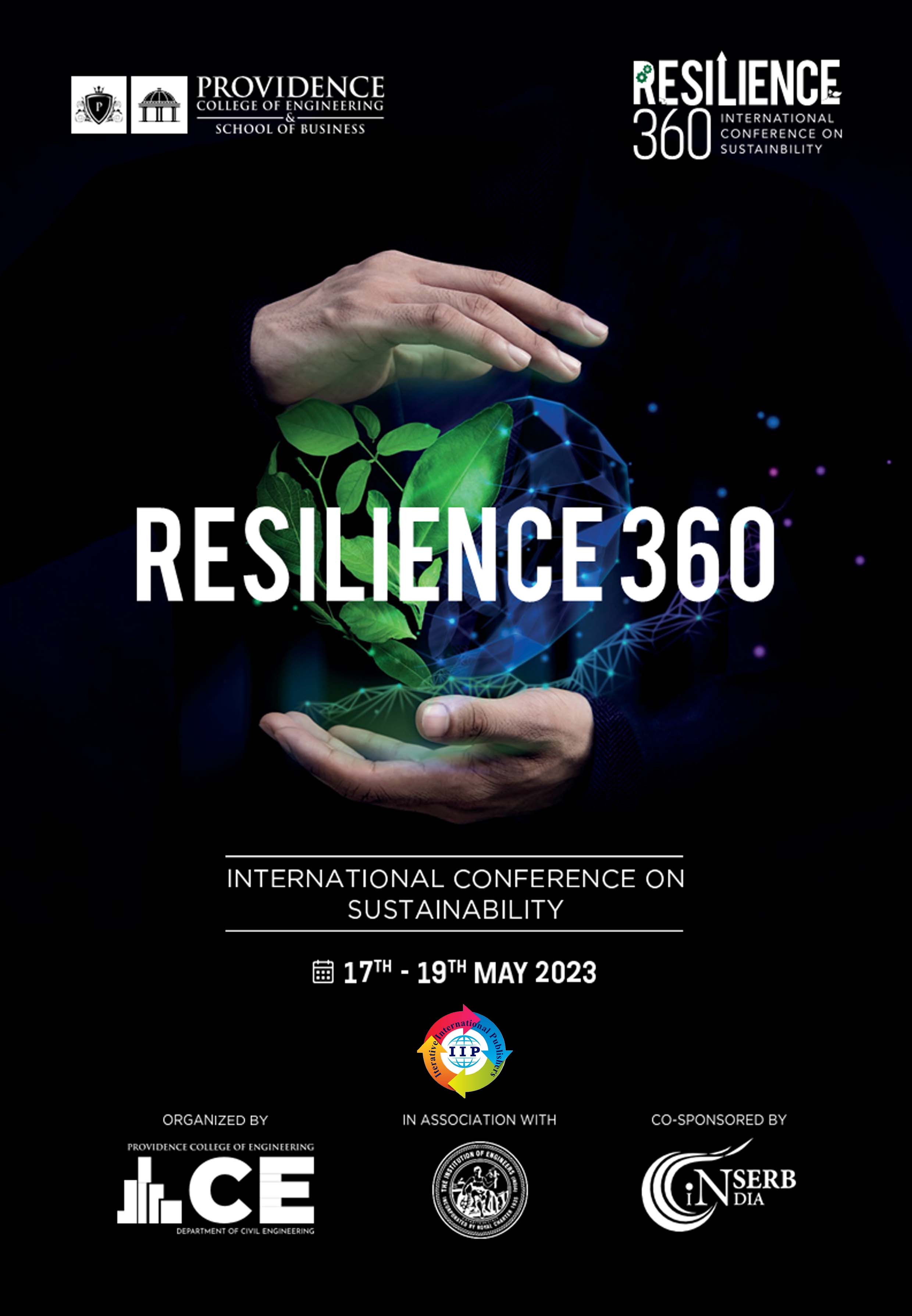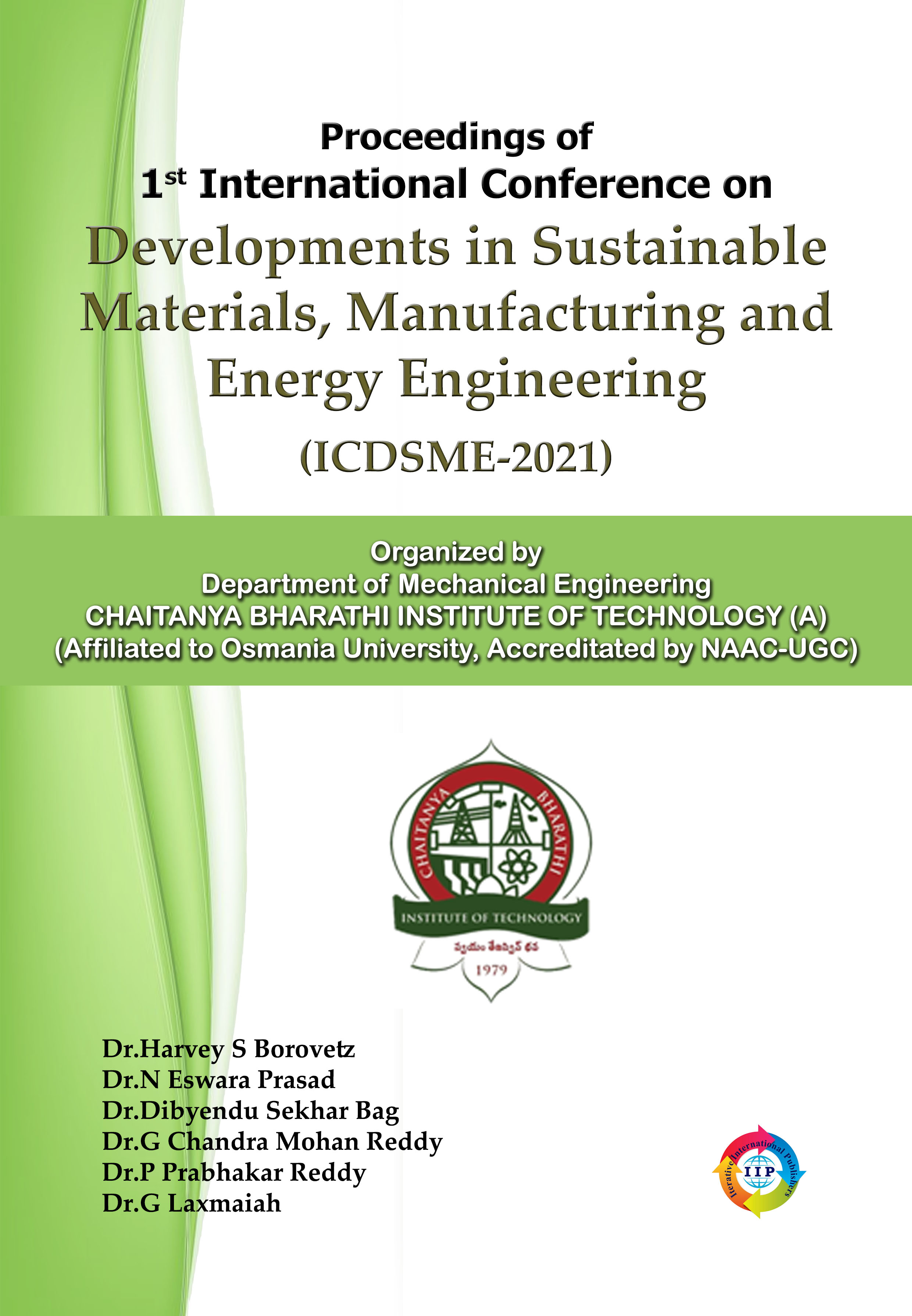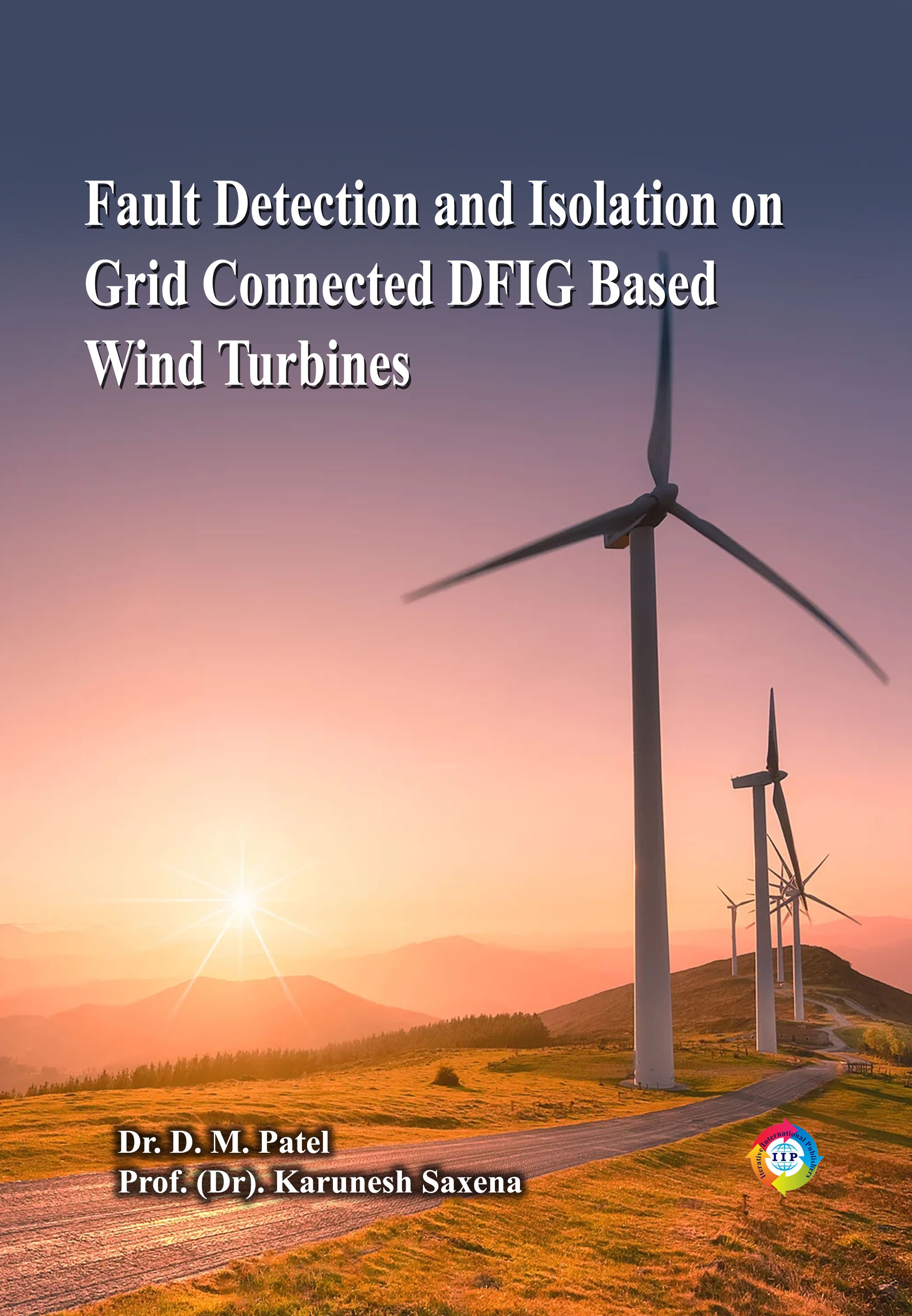
ENVIRONMENTAL SUSTAINABILITY WITH GREEN TECHNOLOGY
-
TypePrint
- CategoryAcademic
- Sub CategoryEdited Book
- StreamRenewable & Sustainable Energy
It is a persistent problem to decouple resource use and environmental degradation from economic and social progress, and this calls for a paradigm shift in our thinking. A new socioeconomic model that will allow our current and future generations to live in a clean, healthy environment and in harmony with nature is being provided by green technologies, which are currently playing a significant role in shifting the trajectory of the world's economic growth in that direction. If green technology ideas are adopted and spread throughout society, it will be easier to achieve the Millennium Development Goals of preserving and enhancing the environment for civilization's continued existence.
Plastics are used practically everywhere, including household packaging, bottles, cell phones, printers, and other items. Additionally, it is used in manufacturing sectors ranging from pharmaceuticals to the automotives. Sadly, these plastics with a petroleum foundation are not biodegradable. This led to one of the main factors contributing to solid waste contamination from landfills. Concern among the general public regarding the negative environmental impacts of plastics made from petrochemicals has grown in recent years. The issue of managing plastic trash on the planet is getting worse very quickly these days, and research has been initiated to identify appropriate eco-friendly materials to reduce environmental damage. Using green technology, researchers have created entirely biodegradable polymers, which are disposed of in the environment and easily breakdown through the enzymatic activity of microorganisms, in an effort to identify alternatives. The breakdown of biodegradable plastic yields a variety of easily disposed-of natural substances, including carbon dioxide, methane, water, biomass, humic matter, and others. Because of their capacity to degrade in a biotic environment, these types of material are termed as bioplastics.
Due to the widespread use of chemical fertilisers and pesticides during the past century, agricultural production has increased significantly, but at the cost of environment and human health deterioration. The chemicals are not only pricey, but they also have negative impacts on human health and decrease microbial activity in agricultural soils and the food chain. Therefore, it is imperative that we investigate alternatives and come up with solutions to end our growing reliance on toxic chemicals. An alternative might be provided by biomanures, which are made up of microbes, organic materials, and plant residues. They are organic, natural, biodegradable, economical, and environmentally beneficial. Additionally, the bacteria found in biomanures are crucial because they generate nutrients like nitrogen, phosphate, and potassium that plants need to grow, as well as molecules like auxins and cytokinins that are crucial for plant development. While lowering the demand for chemical fertilisers and maintaining high crop production, biomanures also enhance the physical characteristics, fertility, and productivity of soil. Because of this, biofertilizers are effective tools for ensuring both a sustainable environment and agriculture.
One of the key components of a nation's economy is energy. It is a crucial component of any nation's human living conditions. Living within one's means and utilising energy and resources in a way that won't jeopardise the living conditions and health of future generations are essential components of a sustainable society. Fossil fuels have received a lot of attention as a source of energy since the industrial revolution. They are not environment friendly, non-renewable materials that require millions of years to regenerate and the globe has been compelled to switch to renewable energy sources due to the rising population, pollution, and quick depletion of non-renewable fossil resources. Solid waste is one of the most promising renewable energy sources for supplying the world's rising energy needs. The waste-to-energy WTE sector is dominated by incineration globally, but especially in wealthy nations. Anaerobic digestion is the burgeoning technique in renewable energy production after thermal methods. One thermal procedure that has no influence on the environment is incinerating garbage, which lowers the amount that needs to be put in landfills. The main objectives of waste-to-energy includes reduction of greenhouse gas emissions and creation of fossil fuel alternatives.
Suitable environmental indicators must be developed and used for long-term monitoring with the determination of ecological functions, such as biological productivity, diversity, autonomy, and resilience, to name a few, in order to evaluate the suitability of sustainable environmental management strategies. It is crucial to clarify and better comprehend those limiting processes or characteristics that are essential for efficient management and long-term sustainability with regard to green or plant-based sustainable technologies. In order to actively develop and apply novel sustainable technologies and strategies in agricultural production and environmental management, such as biofuels and the green economy, more global research will be required. The development of genetic engineering technology and its potential applications, which could lead to economically efficient and environmentally friendly biotechnologies, are currently the subject of ongoing research. It goes without saying that a global effort will be required to conduct research in several fields in order to develop the long-term sustainability of the entire planet's environment.
Every time a civilization shifts from an agriculturally based, widely dispersed, low-density population to an urban, high-density one, solid waste management becomes necessary. The vast amount of solid trash has also made it extremely difficult for the environmental authority to manage solid waste in a way that is highly sustainable. More meaningful solid waste issues are being faced now than there were in the past, and how to solve these issues presents a significant challenge for everyone around the globe. The Zero Waste idea is a well-known approach to deal with the problems of solid waste. Zero waste management refers to a holistic approach to waste management that acknowledges waste as a resource produced during the transitional stage of the resource consumption process. Urban resilience, smart cities, and the circular economy are just a few of the research fields and disciplines that need to be involved in the effort to understand what a Zero Waste city needs.
The book entitled Environmental Sustainability with Green Technology contains - book chapters contributed by eminent scholars, researchers, and academicians from diverse fields and give a distinctive collection of material on each subject. This book is intended for a potentially wide range of readers at various levels of hierarchy, from graduate students and researchers to decision-makers in this field of growing relevance. The readers of this book will be undoubtedly benefitted from this collaborative understanding of the various green technologies being used for sustainable environmental management.
**Note: IIP Store is the best place to buy books published by Iterative International Publishers. Price at IIP Store is always less than Amazon, Amazon Kindle, and Flipkart.





COMMENTS
No Review found for book with Book title. ENVIRONMENTAL SUSTAINABILITY WITH GREEN TECHNOLOGY